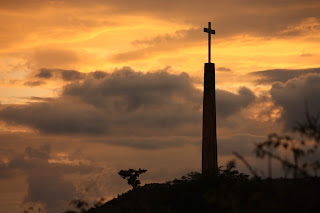Educating the Next Generation of Community Leaders in Nicaragua
Nicaragua's agricultural sector provides a higher rate of employment opportunities than in any other country in Central America. This can be problematic from a development perspective, though, as 43% of these agriculturalists are under 25 and have only 3.5 to 5 years of schooling. Moreover, 72% of the population of the country has not attended secondary school. Therefore, it is important to the country's economy to support agricultural training and education with a focus on student retention and growth opportunities.
Among the coalition of organizations trying to engage rural youth and build new skills is CETAA, a vocational and technical school for environmental studies and agroforestry techniques. CETAA works closely with the 7 ethnic populations in Wawashang, a remote Caribbean coastal settlement in Nicaragua. Farmer-to-Farmer volunteer Sandro Lopes, a youth-in-development professional, volunteered with CETAA to propose a strategy to implement a 4-H curriculum, a global nonprofit leader concentrated on rural youth development education. Upon arriving in Wawashang, he spoke with members of the community and used a participant-observation methodology to understand the community's needs.
When studying CETAA’s current approach to teaching the community, Sandro noted that their curriculum had not changed much over the past couple of years, He brainstormed how to create a new engaging program and what skills were most important for community member youth to develop. Among his ideas, he wanted to strengthen volunteering opportunities and suggested potential work in the Wawashang hospitality and guest services industry.
Most importantly, Sandro wanted to help develop youth skills in STEM and agriculture, healthy lifestyles, and citizenship leadership. He wanted the Nicaraguan students to be experienced in overcoming countrywide histories on the social consequences of narcotics and cartels, be able to evaluate economic and environmental project impacts, as well as be knowledgeable about advanced agricultural techniques.

Sandro’s trip was a success! He held multiple workshops and trained 61 people in 4-H positive youth development, including staff, professors and local youth. Sandro helped develop four future business ideas that included selling decoration-artisanal wood spoons, wooden key chains and USBs, T-shirts and hats, and acting as School Tour Coordinators. The program will need designers in the future to help market these services
He successfully developed interest in a grant proposal for a new 4-H Entrepreneurship and Leadership Center, Oregon State University and Clemson University to create a pilot program about rural entrepreneurship. In his personal reflection of the trip, Sandro was tremendously honored, proud of his impact, and received amazing feedback.
Among the coalition of organizations trying to engage rural youth and build new skills is CETAA, a vocational and technical school for environmental studies and agroforestry techniques. CETAA works closely with the 7 ethnic populations in Wawashang, a remote Caribbean coastal settlement in Nicaragua. Farmer-to-Farmer volunteer Sandro Lopes, a youth-in-development professional, volunteered with CETAA to propose a strategy to implement a 4-H curriculum, a global nonprofit leader concentrated on rural youth development education. Upon arriving in Wawashang, he spoke with members of the community and used a participant-observation methodology to understand the community's needs.
When studying CETAA’s current approach to teaching the community, Sandro noted that their curriculum had not changed much over the past couple of years, He brainstormed how to create a new engaging program and what skills were most important for community member youth to develop. Among his ideas, he wanted to strengthen volunteering opportunities and suggested potential work in the Wawashang hospitality and guest services industry.
Most importantly, Sandro wanted to help develop youth skills in STEM and agriculture, healthy lifestyles, and citizenship leadership. He wanted the Nicaraguan students to be experienced in overcoming countrywide histories on the social consequences of narcotics and cartels, be able to evaluate economic and environmental project impacts, as well as be knowledgeable about advanced agricultural techniques.

Sandro’s trip was a success! He held multiple workshops and trained 61 people in 4-H positive youth development, including staff, professors and local youth. Sandro helped develop four future business ideas that included selling decoration-artisanal wood spoons, wooden key chains and USBs, T-shirts and hats, and acting as School Tour Coordinators. The program will need designers in the future to help market these services
He successfully developed interest in a grant proposal for a new 4-H Entrepreneurship and Leadership Center, Oregon State University and Clemson University to create a pilot program about rural entrepreneurship. In his personal reflection of the trip, Sandro was tremendously honored, proud of his impact, and received amazing feedback.



.png)

Comments
Post a Comment